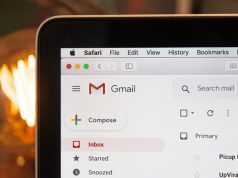As Filipinos spend majority of their time on social media, a global cybersecurity company shared tips on how they can protect themselves from an online attack involving their personal information.
Called doxing, the practice involves gathering the personal information of an individual with the purpose to publish or use it in some other way to cause harm.
Kaspersky defines it as “the act of revealing identifying information about someone online, such as their real name, home address, workplace, phone, financial, and other personal information.”
“That information is then circulated to the public — without the victim’s permission,” the company added.
Its privacy experts have created a checklist that lets internet users be informed about handling their personal data responsibly so that it wouldn’t fall into the wrong hands.
It is divided into three sections which will ease the risks and stress of data loss and diminish the user’s potential to be doxxed.
“With our lives being so intertwined with the digital world, it is no wonder that we face online threats so regularly. Tools for self-expression can also be used against us, with doxing continuing to gain popularity as a way to punish and hurt people,” Anna Larkina, senior security expert at Kaspersky, said in a release.
“Unfortunately, it is not possible to control everything that exists online about us, but it is definitely a good idea to take some steps towards it. To keep one’s data safe and alleviate the risks, we need to become mindful about who we share our data with and how, and to take certain precautions in order to keep control over it,” she added.
In the Philippines, blogger Jover Laurio of “Pinoy Ako Blog” has claimed to be victimized by pro-administration bloggers Rey Joseph Nieto and Allantroy Rogando “Sass” Sasot in 2018 because of doxing.
She accused the two of such when they published her name, credentials for her blog and her law school on Nieto’s blog titled “#CocoyGate: Cocoy’s Missing? Hey NBI Cybercrime, here’s another name.”
Laurio claimed that its publication has caused her to receive harassment and threatening messages that prompted her to take a leave of absence from law school and her work.
Kaspersky said users can become empowered and experience less digital stress through its privacy checklist.
Below are some of the company’s tips to protecting one’s data online:
- Be conscious of which personal data you share and with whom, as well as how much you trust them.
- Be mindful of who you share your data with and when.
- Think before you post. Be accountable for what you share. Every time. Even if your account is closed.
- Use abstract geotags, if any at all. Do not tag photos with specific locations that you visit regularly.
- Make sure that you do not show your personal data on the photos you share.
- Understand which messengers are safe and which ones have end-to-end encryption.
- Invest wisely in your smart devices. Cheap development often means higher data leak risks.
- Shop online in trusted stores. The fewer, the better.
The company also has a free online course where internet users can learn more about doxing and how to protect themselves.










